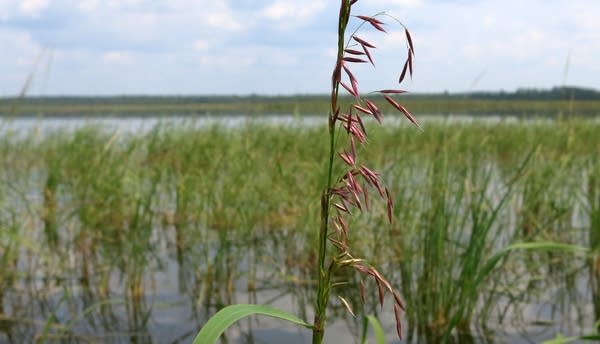Iron Range legislators, Dayton reach compromise over sulfate standards for wild rice

Like this?
Log in to share your opinion with MPR News and add it to your profile.
Like this?
Thanks for liking this story! We have added it to a list of your favorite stories.
State lawmakers have reached a compromise with Gov. Mark Dayton's administration on legislation over wild rice protection.
The compromise will temporarily prevent state regulators from forcing companies to invest in new treatment technologies to protect wild rice.
At issue is a limit on sulfate — the water quality standard designed to protect wild rice.
Rep. Carly Melin, DFL-Hibbing, and other Iron Range lawmakers fought to prevent the MPCA from enforcing the state's existing sulfate standards, which have only recently been enforced.
Support the News you Need
Gifts from individuals keep MPR News accessible to all - free of paywalls and barriers.
Melin said the compromise will allow water permits for operations like U.S. Steel's Minntac plant to go forward without sulfate limits until new rules are ready. It will prevent the MPCA from forcing a mining company or wastewater treatment facility to spend money to reduce sulfate in the water.
"All we're saying is, OK, let's take a breather over these next couple of years here and operate the same way we've operated for the previous 130 years until all the science is in, all the science is complete, all the rules are complete," Melin said.
Once the rules are in place, the compromise allows the MPCA to reopen water permits and enforce the new standard.
Minnesota has a standard for sulfate levels in place — 10 milligrams per liter — but it hasn't been enforced until recently. Meanwhile, the MPCA has proposed a new approach for sulfate rules, which involves looking at the conditions in individual lakes and rivers where wild rice grows.
Sulfate is a compound that occurs naturally, but it's also released by iron mining operations and wastewater treatment plants.
Environmental groups have urged the state to enforce the existing sulfate standard, saying it protects wild rice.
MPR News reporter Tom Scheck contributed to this report.


